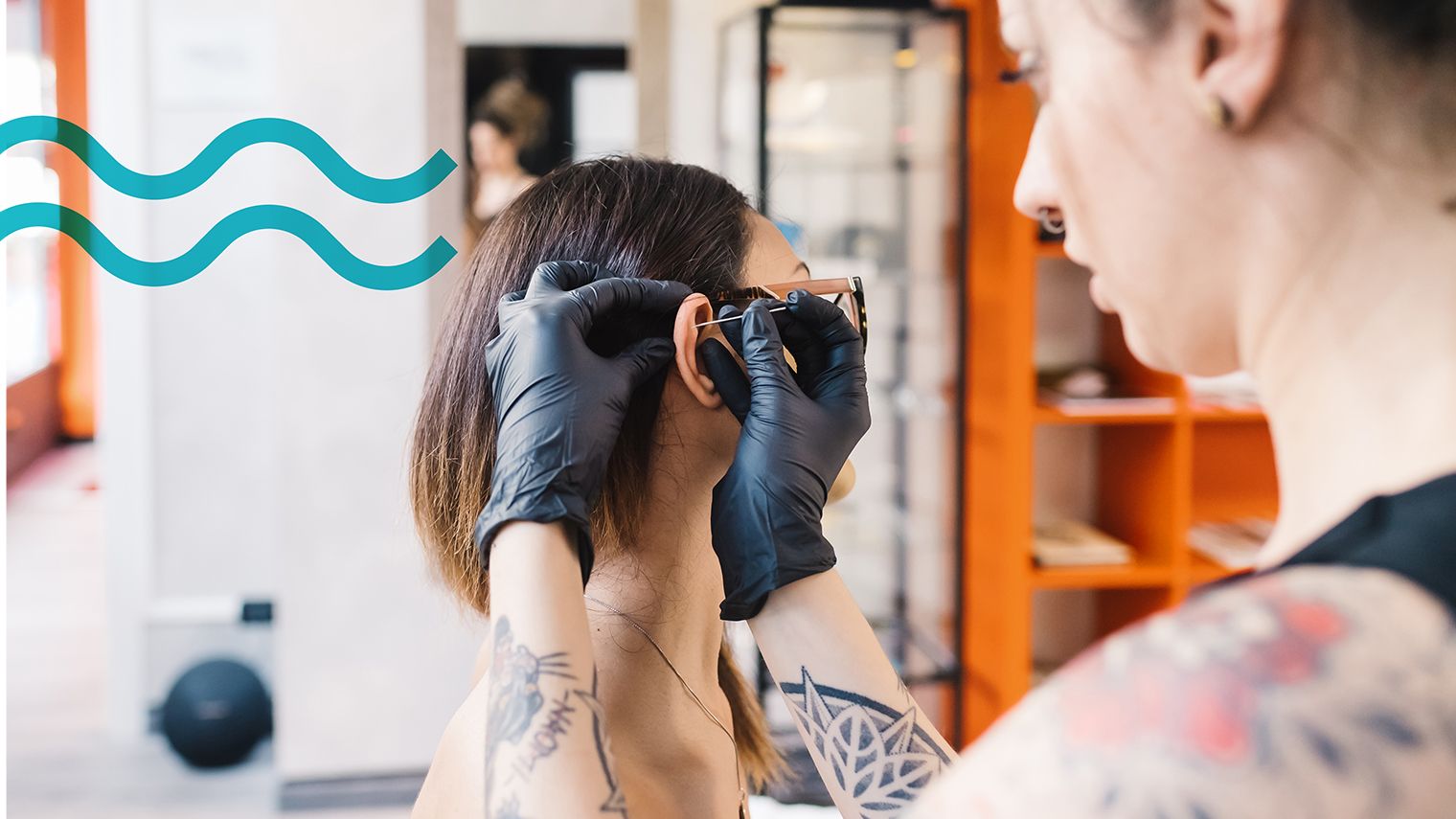Are Ear Piercings for Migraine Effective?
May 16, 2023
Content created for the Bezzy community and sponsored by our partners. Learn More

Though some people have reported experiencing a reduction in migraine symptoms after getting a daith or tragus piercing, research on the effectiveness of ear piercings for migraine relief is limited. Here’s what you need to know.
Migraine is a chronic condition that affects millions of people worldwide. Migraine attacks can involve a numerous symptoms, including severe pain, nausea, and sensitivity to light and sound.
Various treatment options for migraine include medications, lifestyle changes like diet and exercise, and integrative and complementary therapies. Many people find that a combination of therapies, rather than one specific treatment, helps them best manage their symptoms.
One therapy that has grown in popularity on social media in recent years is ear piercings, specifically daith and tragus piercings. If you live with migraine, you may be curious whether daith piercings or tragus piercings could help relieve your symptoms and whether they are safe.
Though individuals have reported migraine relief from piercings, scientific research is lacking. Here’s what to know if you’re considering piercings for migraine.


Daith piercings for migraine
Daith piercing involves puncturing the small fold of cartilage in the innermost part of the ear. It is believed to target a pressure point associated with migraine. This theory originated and grew in popularity on social media and online forums. However, the scientific evidence supporting the effectiveness of daith piercing as a treatment for migraine is limited.
One case study in 2017 found that a patient who received a daith piercing reported a significant decrease in the frequency and intensity of their migraine attacks. However, the study includes the experience of only one participant and didn’t include a control group.
Though some people have self-reported that daith piercing provided migraine relief, more research is needed to determine its effectiveness and safety.
Tragus piercing for migraine
Tragus piercing is another form that has been discussed as a potential migraine therapy. The tragus piercing involves puncturing the small, round flap of cartilage that covers the ear canal. Similarly to daith piercing, it is believed to stimulate the vagus nerve and, in doing so, reduce migraine-related symptoms.
However, scientific evidence supporting its effectiveness is even more limited than the research on daith piercing. Most of what is known about tragus piercing’s use among people with migraine is anecdotal.
How piercings for migraine are said to work
Theories about daith and tragus piercings helping relieve migraine symptoms may have derived from research on acupuncture. The areas targeted in these piercings are also used in auricular acupuncture, which has been shown to be helpful in treating migraine.
Several studies have demonstrated that acupuncture and auricular acupuncture, specifically, can provide short-term and long-term relief from migraine-related pain. Still, the exact mechanism behind the effectiveness of acupuncture for migraine is not well understood.
Functional MRI studies have found that acupuncture can affect various areas of the brain involved in pain perception and management. It’s thought that perhaps acupuncture stimulates certain nerves in the ear that modulate the trigeminovascular system, a pathway associated with migraine attacks.
Though research into the potential benefits of daith and tragus piercing is lacking, some believe it may work similarly to auricular acupuncture by stimulating the same nerves in the ear. However, more research is needed to understand the potential benefits and risks of ear piercing.
What are the risks of daith and tragus piercings?
Like all piercings, daith and tragus piercings come with risks, including infection, allergic reactions, and damage to the cartilage. The risk of infection can be minimized by ensuring that the piercing is performed in a sterile environment, using sterile equipment, and following proper aftercare instructions.
The pain level experienced during a daith or tragus piercing can vary from person to person, as pain tolerance differs. However, these sorts of piercings are generally considered more painful than earlobe piercings due to the thickness of the cartilage in the areas. The piercing process involves inserting a needle through the cartilage, which can cause discomfort, and some people may experience pain and swelling for a couple of days following the procedure.
The takeaway
Though some individuals have reported that daith and tragus piercings provided migraine relief, scientific evidence is limited. Research does not support using tragus or daith piercings as effective migraine therapy.
However, if you’re interested in a tragus or daith piercing for cosmetic reasons, it’s a low cost and relatively low risk procedure. Still, it’s important to remember that there is no guarantee that it will provide any migraine relief.
If you are looking for integrative or complementary options for migraine relief, contact a healthcare professional.
Though ear piercings may not help reduce your migraine symptoms or the frequency of your attacks, many other treatment options can help manage the condition. Working with your doctor can help you find the best treatment regimen for you.
Medically reviewed on May 16, 2023
4 Sources


Like the story? React, bookmark, or share below:
Have thoughts or suggestions about this article? Email us at article-feedback@bezzy.com.
About the author